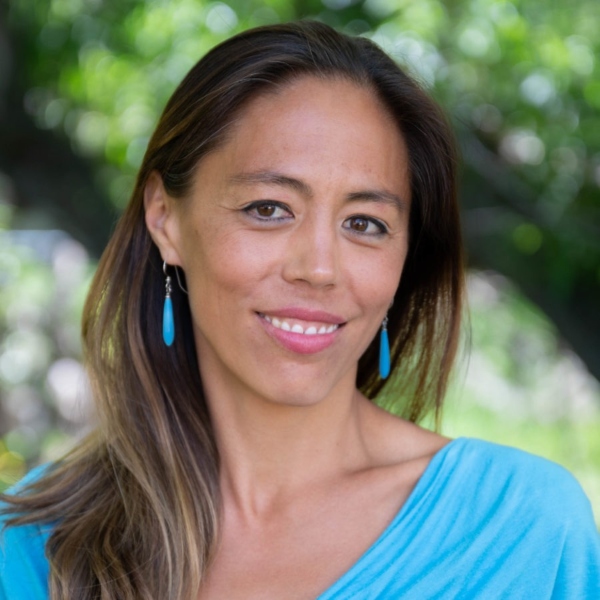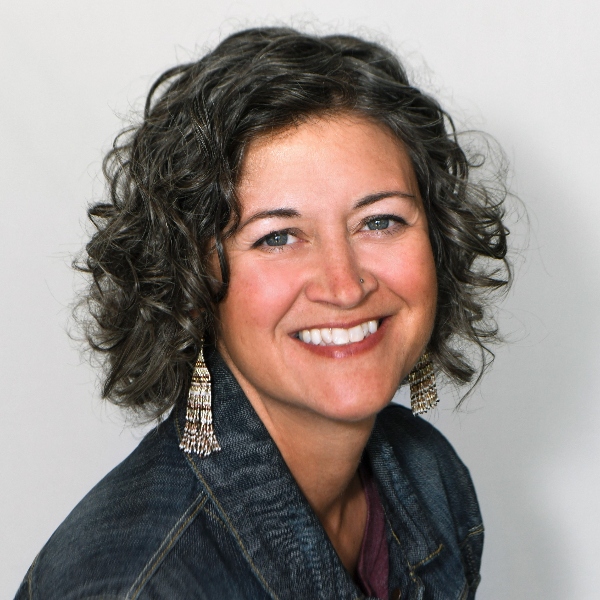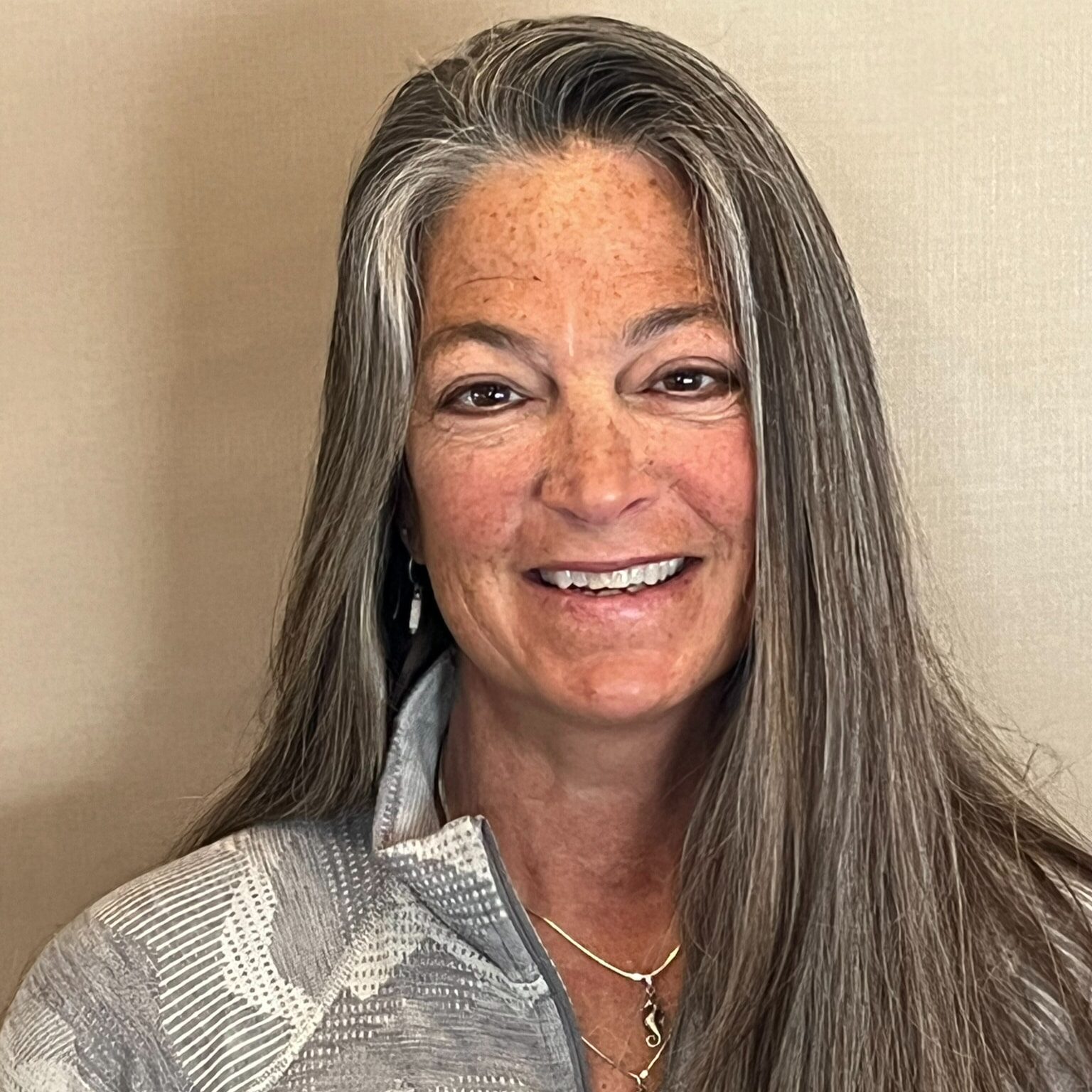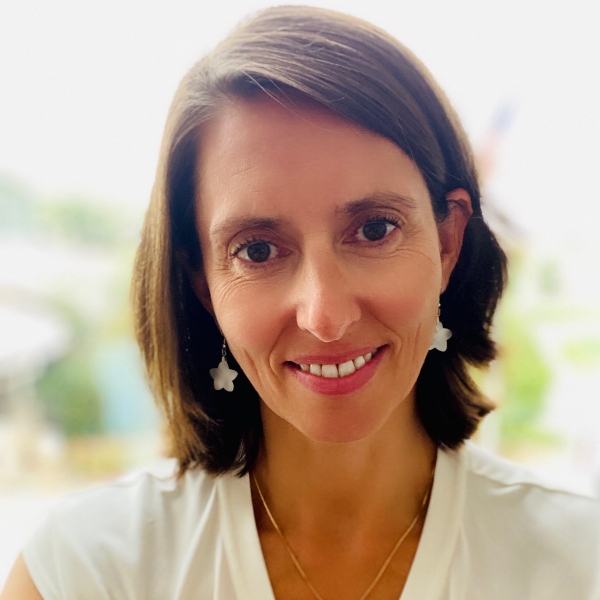Kimiko Barrett, Research and Policy Analyst, Headwaters Economics
Katherine Dickenson, Associate Professor, Colorado School of Public Health
Tony Cheng, Professor, CSU and Director, Colorado Forest Restoration Institute
Emily Hagen, Executive Director, Grand Lake Area Chamber of Commerce
Julie Knauf, Nurse, Bartender, and Outdoor Enthusiast
Esther Vincent, Director of Environmental Services, Northern Water
Kimiko Barrett

Born and raised in Montana, Dr. Kimiko Barrett (Kimi) has a deep interest in rural landscapes and the people who live there. She has a natural aptitude for connecting and energizing people in the pursuit of community resilience and climate adaptation.
Kimi is a committed agent of change in how we live with inevitable wildfires. Drawing on the expertise within the broad networks she has built, she has led research of national significance on topical issues such as the true cost of wildfires, the cost of building wildfire-resistant homes, and measuring wildfire impacts through structure loss. Her work has changed the national wildfire narrative and shaped new strategies for engaging communities on wildfire resilience.
Kimi managed Headwaters Economics’ Community Planning Assistance for Wildfire program for six years. In that capacity she worked with firefighters, land use and planning staff, government agency personnel, and elected officials in more than 80 communities across the country, helping them devise community-driven solutions to reduce wildfire risk and increase community adaptation efforts. She was recently appointed, served, and led efforts as a member of the Federal Wildland Fire Mitigation and Management Commission.
Katherine Dickenson

Dr. Katherine "Katie" Dickinson is an Associate Professor with tenure of in the Environmental and Occupational Health department at the Colorado School of Public Health. She conducts collaborative, interdisciplinary research-to-action to advance environmental and climate justice. International projects have addressed water and sanitation, household energy and air pollution, and malaria. Domestically, she has studied wildfire, infectious disease (including COVID-19 and mosquito-borne disease), housing, and oil and gas development. Katie’s teaching focuses on environmental and occupational health policy, and how public health professionals can partner with change-makers at different levels to build healthier and more resilient communities where everyone can thrive.
Tony Cheng

Tony Cheng is a professor at Colorado State University in the Forest & Rangeland Stewardship department with an Extension/Research/Teaching appointment split and director of the Colorado Forest Restoration Institute (CFRI). His research focuses on conditions and strategies influencing collaborative stewardship of forests. Through his Extension appointment, Tony oversees CFRI’s work to translate science into locally-relevant and actionable knowledge to address forest resilience and wildfire risk management goals. Born and raised in Pullman, Washington in the heart of Eastern Washington’s Palouse region, Tony received his undergraduate degree in Political Science at Whitman College in Walla Walla, Washington, a MS in Forestry at the University of Minnesota, and a PhD in Forestry at Oregon State University. In addition to his academic training, Tony served as a in the Forest Policy Research Fellow at American Forests in Washington, DC. Tony has been at Colorado State University since 2000 and the director of CFRI since 2008.
Emily Hagen

Emily Hagen is the Executive Director of the Grand Lake Chamber of Commerce, a position she has held since 2019. A full-time resident of Grand Lake for a decade, Emily is a seasoned marketing and public relations professional dedicated to leveraging her expertise to benefit the community. The Chamber, a membership organization, promotes sustainable tourism through destination marketing and serves as the marketing arm for the town of Grand Lake.
Emily is committed to educating the public about the impacts of wildfires on a community in both the economic and personal realms and has spearheaded initiatives such as the installation of Troublesome Stories, an educational exhibit that highlighted wildfire impacts and community resilience. Her efforts have consistently supported and enriched Grand Lake, showcasing her passion for fostering a resilient and thriving environment for both residents and visitors alike.
Julie Knauf

Julie Knauf moved to Grand County in September 1990 from Chicago, Illinois. She is a registered nurse and Pediatric Nurse Practitioner, as well as a part-time bartender and a manager/cook for a 3rd generation hunting outfitter in the fall. She married her loyal and caring husband, Paul Parker, in 2009. They have an active yellow lab named Jasper and a mouse-slaying cat named Catch’em. Together they have rafted multiple rivers, telemark skied many runs, and enjoy adventurous scuba diving vacations. Julie loves her extensive number of cross-country ski days with her pup. They currently live in a 5th wheel on the property they lost to the East Troublesome Fire, slowly regenerating with groves of shoulder-high aspens and an abundance of amazing wildflowers in spring and summer, as they work on their rebuilding process.
Esther Vincent

Esther Vincent holds a master’s degree in civil engineering from the Grenoble Institute of Technology in France and is a registered professional engineer in Colorado. She is also an alumna of the WeCo Water Leaders program. Esther has been with Northern Water since 1999, gaining experience in water quality, watershed management, water supply planning, environmental permitting and regulations, source water protection, forest health and water conservation.
In recent years, she has been leading Northern Water’s watershed restoration efforts in the wake of the 2020 East Troublesome Fire. Additionally, she oversees the organization’s water quality, water efficiency, and flow monitoring programs, along with environmental planning, compliance, and environmental data management
systems. Esther's work supports Northern Water’s ongoing commitment to managing water and protecting water resources.







